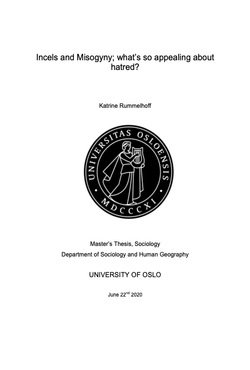By Lydia Bates, et al.
Why this guide? A wide variety of forms of misogyny and gender-based bigotry have spiked in recent years. This includes a documented rise in forms of male supremacist violence that are now recognized as part of the spectrum of domestic violent extremism, including threats, plots and attacks from misogynist incels. Everyday forms of misogyny and hostile sexism, especially online, have also increased, with one study showing that misogynistic tweets positively predict domestic and family violence in the United States. Further, anti-feminist sentiments have been rising among Generation Z boys and young men. This rise in gender-based bigotry includes a surge of anti-LGBTQ+ ideas and beliefs, evidenced through the hundreds of discriminatory bills introduced across the United States in 2024. At the intersection of anti-Black racism, anti-LGBTQ+ hate and misogyny, Black women, girls and transgender women experience an outsized amount of harm and violence. On the community level, these harms manifest from harassment at Pride month events and attacks on LGBTQ+ friendly businesses to unequal reproductive health care access and deadly transmisogynist violence. These surges are partially explained by the sheer breadth of online spaces where gender-based hate is fostered and thrives, such as video game chats, comment trolls on mainstream social media sites, and dedicated Reddit pages focused on ways to manipulate and denigrate women. Because hateful comments, memes and short-form videos are often infused with irony, satire or other forms of humor, gender-based hate online is sometimes disguised as “just a joke” or hidden behind the excuse of having two different meanings. Hate and policing individuals’ gender have also been legitimized and normalized by politicians, elected officials, and online influencers who peddle supposed success stories of wealth and status that rely on the exploitation and domination of women. And extremist groups who embrace racism and political violence, like the Proud Boys, have joined the fray by directly targeting bookstores that host Drag Story Hours and demonstrations advocating for abortion rights. Falsely linking drag performances and LGBTQ+ people with sexual predation, sometimes called “grooming,” they have sought new ways to build sympathy among mainstream conservatives. Collaboration & Scope A collaborative team of experts from the Southern Poverty Law Center (SPLC) and the Polarization & Extremism Research & Innovation Lab (PERIL) drafted this guide. It is part of a broader public health approach for the prevention of violence and harm stemming from extremism, manipulative disinformation and dehumanizing rhetoric. Our organizations root our development of this approach in communities’ needs and by centering support for targeted individuals and survivors. And our approach is necessarily noncarceral, so that we can emphasize education and prevention over monitoring, surveillance and other security-based approaches. This guide is a resource for caregivers who surround and support young people – parents and relatives, teachers and educators, counselors and therapists, coaches and youth mentors, and more. It includes an overview and introduction to the concepts, trends and risks related to gender-based bigotry alongside the tools to build resilience and awareness, as well as ways to intervene. It also provides strategies and resources to support survivors and targeted individuals and communities. While this guide cannot cover every harm that young people will encounter related to gender-based bigotry, we aim for as wide a breadth as possible.
Montgomery, AL: Southern Poverty Law Center, 2024. page 1-28.





